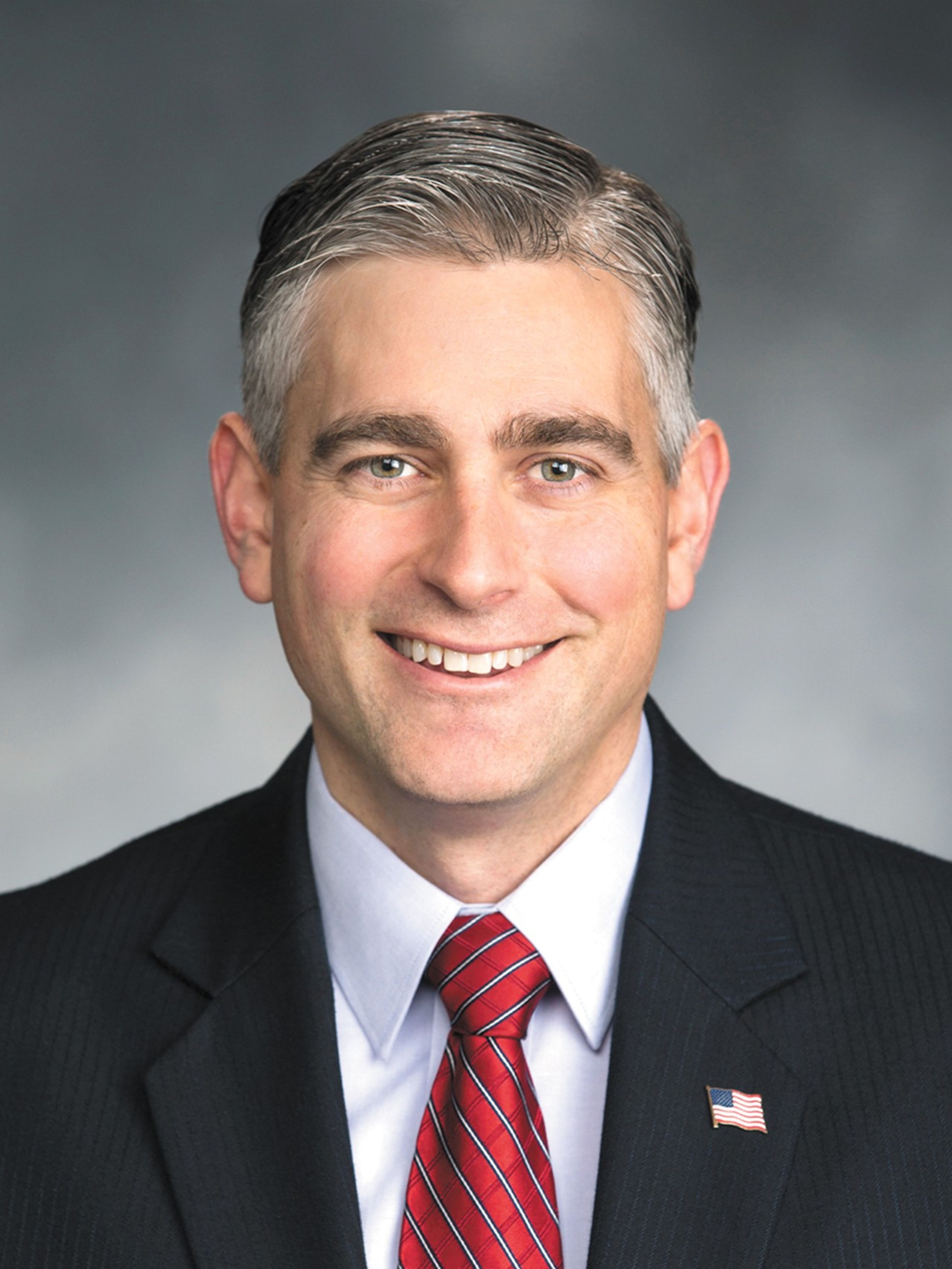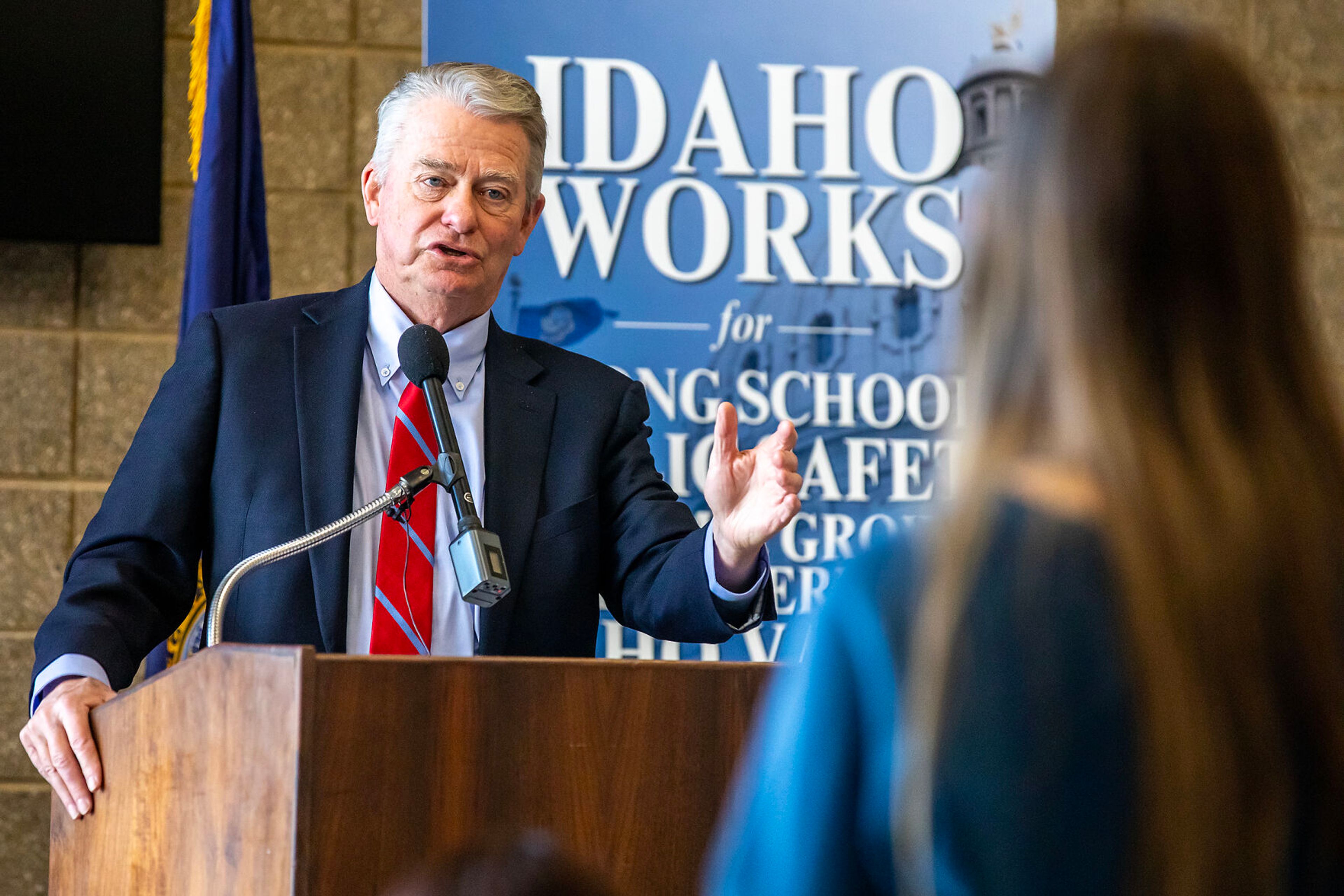Gov. Little orders Idaho to shut down
Governor’s directive allows some ‘essential’ businesses to stay open
BOISE — Based on guidance from the state’s public health officials, Gov. Brad Little issued a statewide “stay-at-home” order for all Idaho residents Wednesday, effective immediately.
The directive will remain in effect for 21 days and then be reevaluated. The goal is to help slow the spread of the COVID-19 virus and reduce the chances of overwhelming Idaho’s health care system with large numbers of seriously ill people.
“We will get through this together, as long as we all play an active part in fighting the spread of coronavirus,” Little said. “I’m proud of Idaho and the way we support and love our neighbors. Let’s keep it up.”
As of Wednesday, at least 20 states had issued general stay-at-home orders because of the pandemic, including Washington and Oregon. Another 15 had orders in place for part of the state.
The Idaho directive requires people to self-isolate at home, even if they aren’t sick. It does not apply to health care, public safety or other essential industries, such as groceries.
Employers who do not provide essential services, as defined in the order, must take “all steps necessary” for employees to work remotely from home.
Restaurants were ordered to close their dining areas, but drive-through, pickup and delivery options will still be allowed.
Other nonessential businesses and services must close their physical locations. That includes bars, nightclubs, gyms, recreational facilities, entertainment venues, convention centers and hair and nail salons.
People must limit their public transit use, unless it’s to provide or obtain essential services, and must limit all discretionary travel. Nonessential gatherings of any number of individuals outside the household are also banned.
People can still go for walks, run, ride bikes and enjoy other outdoor recreation near their homes, but should stay at least 6 feet away from anyone who’s not part of their household.
Among businesses permitted to stay open are veterinary services, convenience stores, dry cleaners — and liquor stores.
“Normal hours of operation are in effect,” according to a news release from Idaho State Liquor Division Director Jeff Anderson. “Some stores have or may be closed due to staffing shortages caused by child care issues, concern about elderly family members at home, or illness affecting Division employees. No stores have had instances of COVID-19.”
Details regarding the stay-at-home order, including what qualifies as an essential business, are available on the state’s coronavirus website, at coronavirus.idaho.gov.
As of Wednesday evening, Idaho reported 123 confirmed cases of COVID-19, with no fatalities. Cases have been confirmed in 16 counties, including one apiece in Nez Perce and Idaho counties.
In Washington, there have been 2,580 confirmed cases and 132 deaths as of Wednesday evening. Whitman County has two cases.
Nationwide, nearly 60,000 cases of COVID-19 have been reported, with more than 800 deaths.
Those figures are dwarfed by the flu, which so far this season has sickened more than 38 million people nationwide and killed more than 28,000.
Nevertheless, Hahn said the extraordinary measures being taken with regard to the coronavirus are intended to keep the situation from spiraling out of control.
“Because influenza to a certain extent is predictable, hospitals are ready for it,” she said. “They gear up for it; they have the staff. They already have the infrastructure for it.”
The reason the coronavirus is different, Hahn said, “is because it adds on top of influenza and other problems. The second main reason is that, unlike flu — which is sprinkled through the season from October to May — we’re very concerned about getting a tidal wave of sudden illness. We all have a little immunity to the flu, but with coronavirus … we could have a much higher level of illness and hospitalization, and the hospitals aren’t ready to handle that.”
Gov. Little also signed an extreme emergency declaration Wednesday, which allows the state to more effectively increase health care capacity and to take steps to improve the condition of Idahoans whose jobs and incomes are being harmed by the pandemic.
Little made the announcement from Gowen Field in Boise, the headquarters of the Idaho National Guard.
The Guard and Office of Emergency Management are preparing to set up a joint task force to provide mobile testing support, commodity transportation, tents and other equipment, and to perform other duties as needed to respond to the virus.
“These guys do an enormous amount of planning,” Little said. “We do it all the time for fires and floods. This is the time when it comes to fruition. Starting today, we’ll see the dividends from all that planning.”
William L. Spence may be contacted at bspence@lmtribune.com or (208) 791-9168.








